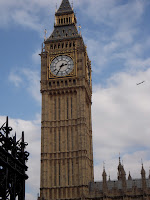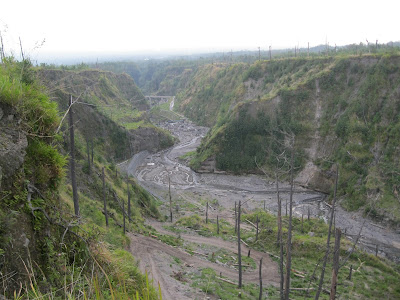After a busy summer of various field projects, Dan Sharpe is back and starts this terms blog posts by looking at the importance of Quaternary mapping...
Quaternary mapping is a technique not taught on many undergraduate geoscience courses, however it is one that is vital in the field of global development.
Mapping Quaternary deposits can tell us whether an area of ground is unstable,
problematic (in terms of future development) or a good aquifer and thus is crucial in construction and planning, along
with natural hazard protection and water resource management.
Quaternary is the name given to the final epochs of the Cenozoic
era; the Pleistocene, the Holocene and the slightly more controversial current
Anthropocene (an informal term for the period of human interference on our
planet). In other words, roughly the past 2.5-2.6 million years (a tiny fraction of the 4.54 billion years the Earth has existed). Mapping these deposits show the levels of interference of surface
processes such as glaciation, desertification, floods and even surface
geochemistry and can be a crucial component in understanding a hazard or
resource.
Natural Hazards
The type of surface deposit can be a very important control on the intensity of a
natural hazard. In particular, the porosity of a soil can seriously affect the
flood risk in an area, and mapping this can highlight areas under threat. In
developing nations, flooding proves a huge setback in physical development and
loss of lives - particularly in southern Asia with the presence of the El Nino
and frequent typhoons. Understanding and mapping areas at risk can not only
reduce the loss of life during periods of flooding but also mitigate the damage
to infrastructure, meaning that there is less need to repair but focus can
instead be placed on development.
Indeed soils and more specifically soil porosity and consolidation
play an important role in other hazards too. The Haiti earthquake of 2010
killed over 300,000 people. One of the major problems in the area was that many
of the poorly constructed homes were built on unconsolidated land that
liquified during shaking (for details see this information sheet). Liquefaction occurs in almost every earthquake on
some scale but in this example an area large enough to cause serious harm was
affected, and thus large scale failure of buildings and roads occurred.
Understanding the ground beneath which construction is taking place is
therefore crucial in aiding the development of nations susceptible to natural
hazards.
Water Resources
Sub-surface characteristics can be crucial in the trapping or
release of water, particularly precipitation. Mapping quaternary deposits will
determine levels of vegetation and type of ground. Levels of surface
run-off or infiltration can be mapped as a result. Potential traps may be
identified and provide important information on where water will hold
underground and where a resource can be exploited. This is an increasingly vital skill
in developing nations, particularly Africa. The World Bank Institute (WBI)
released a statement in 1999 saying:
“... over the past few decades, use of water has increased, and in many
places water availability is falling to crisis levels. More than eighty
countries, with forty percent of the world’s population, are already facing
water shortages.”
This is a trend that has not stopped and thus it is crucial that geoscience courses include techniques to find water resources, and more generally gaining
a greater understanding of near-surface deposits from recent geological
history.
Quaternary mapping is not yet fully integrated into many courses at
universities, but is an increasingly important technique when using the earth
sciences to aid in global development.



































